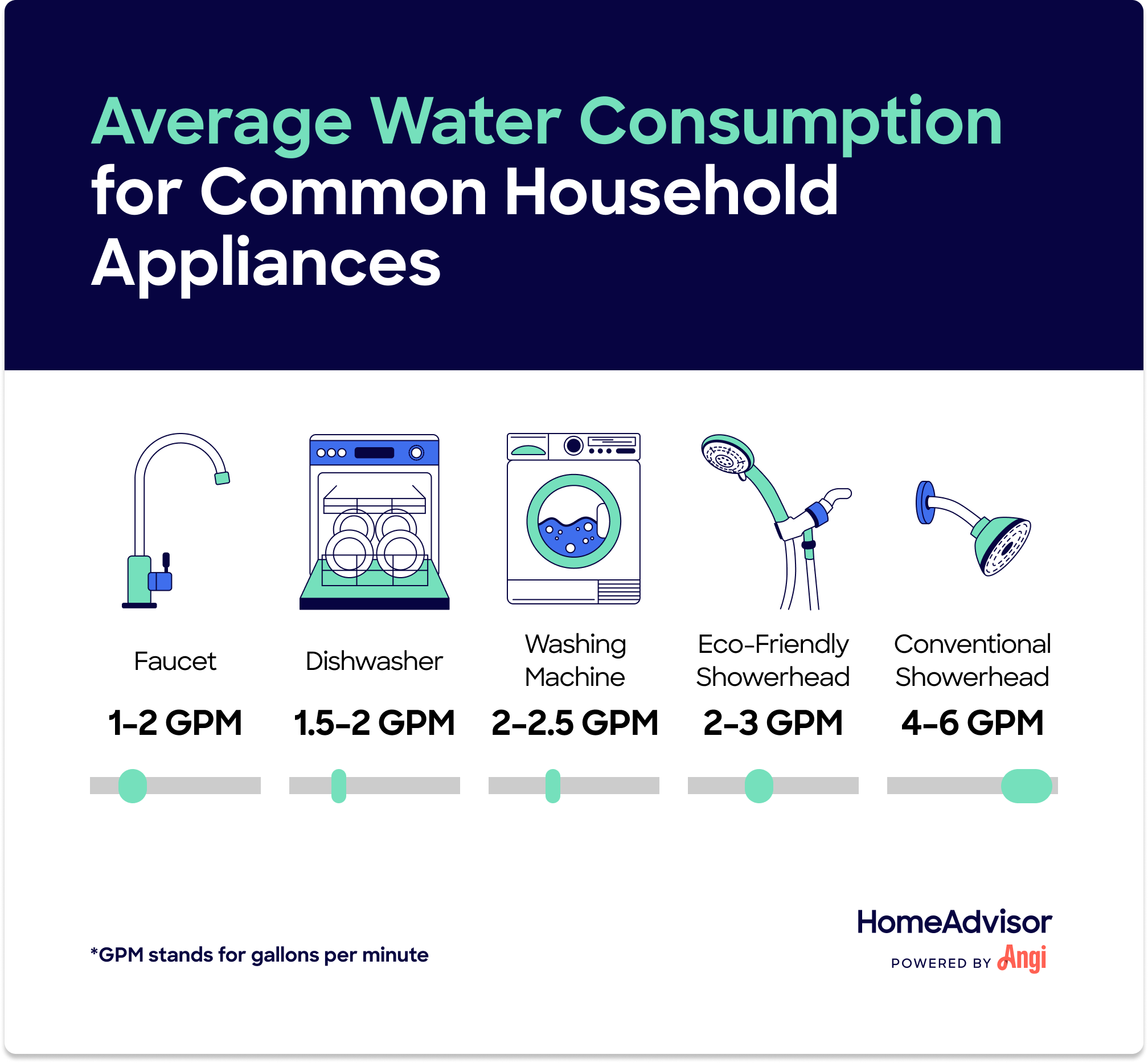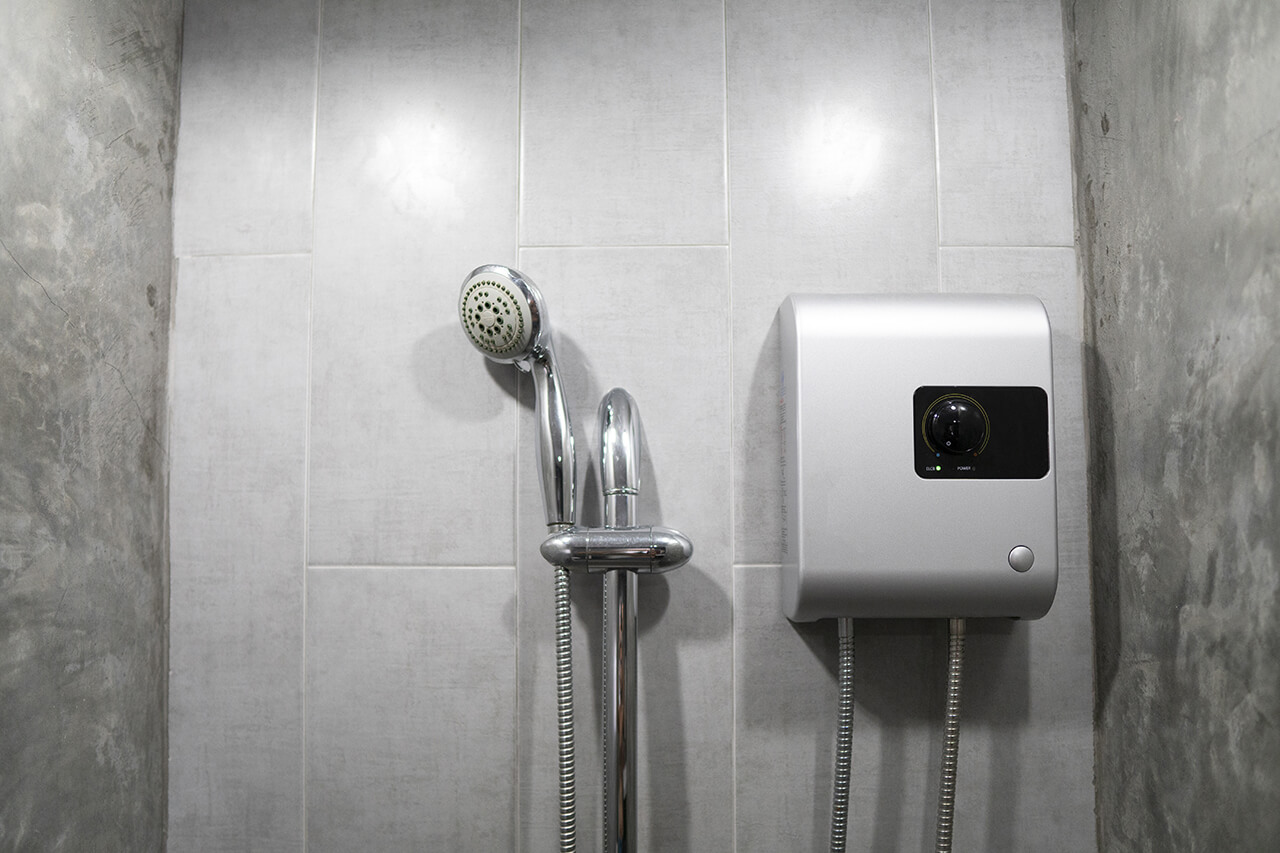How Much Does a Tankless Water Heater Cost?
Typical Range:
$1,398 - $3,889
Typical Range:
$1,398 - $3,889
Cost data is based on actual project costs as reported by 3,568 HomeAdvisor members. Embed this data
.
.
.
.
.
.
.
.
.
.
.
.
.
.
.
.
.
.
.
.
.
.
.
.
.
.
.
.
.
.
•
•
•
•
Updated November 7, 2022
Reviewed by Cati O'Keefe, Expert Home Building & Sustainability Contributor.Tankless systems only heat the water you use as you use it rather than wasting energy heating a tank full of water that eventually goes cold. A tankless water heater costs an average of $2,623 to install, or between $1,398 and $3,889, but labor rates vary. Tankless model prices also vary by brand, type, and flow rate.
These units have the potential to save you money in the long run if they’re installed and connected correctly. The best ways to budget for a new tankless water heater are to compare quotes from local contractors and to ask your local pro whether your tankless system qualifies for a tax refund.
Let's calculate cost data for you. Where are you located?
Where are you located?
| National Average | $2,623 |
| Typical Range | $1,398 - $3,889 |
| Low End - High End | $375 - $6,000 |
Cost data is based on actual project costs as reported by 3,568 HomeAdvisor members.
Several factors impact how much you'll pay for your tankless water heater, including its fuel source, capacity, location accessibility, and more. Keep reading to get more in-depth information below.
Whether you choose propane, natural gas, electricity, or solar determines the cost of your tankless unit. A standard, single-point electric model can cost as little as $150, while a high-end natural gas or solar whole-house unit can cost $1,500 or more.
Single-point (or point-of-use) tankless heaters sit adjacent to the faucet or shower that needs it and cost between $100 and $300. Since they only power one faucet or shower, single-point units are a cost-effective way to get hot water in an addition, garage, or workshop. Plus, they waste very little water and heat because the hot water only has to flow a short distance.
On the other hand, whole-house systems cost around $450 to $1,500. While expensive, they can provide enough hot water for a large family, even when family members are using multiple faucets and the shower at the same time. While a single-point unit produces 1 to 2 gallons of hot water per minute, a larger whole-house system can manage 5 to 10 gallons per minute.
But if your family has a high hot water demand and regularly does laundry, runs the dishwasher, and has multiple people using showers simultaneously, it’s possible you'll need to install multiple whole-house systems.
Tankless water heaters don't hold water like water tanks, so a tankless system's capacity is measured by the flow rate in gallons per minute (GPM) instead of volume. In general, the higher the GPM, the more expensive the unit. A small, single-point unit with a flow rate of 1–2 GPM may cost as little as $150, while an oversized whole-house system with a GPM of 20 can cost up to $4,000.
If the location of the existing water tank or where you need to install the new tankless system is tough to reach or cramped and difficult to work in, expect to pay more for labor, as it'll take longer to do the job. Depending on the inaccessibility, the added complexity can add 10% to 15% of labor costs to your project total.
Permits can cost anywhere from $50 to $500 for installing a tankless water system. Check the building codes in your area to confirm whether you need a permit. In some states, replacing a water heater is deemed a separate job from a water heater installation, and where one requires a permit, another may not. If you choose a plumber, they'll already know any regulation requirements and can take care of it as part of the job.
Many brands offer tankless water heaters. Some offer budget-friendly models, while others provide high-end specialized units and solar models. Review the list below to find out the price range for some of the most popular units on the market today.
| Tankless Water Heater Brand | Average Price Range |
|---|---|
| EcoSmart | $150 – $1,600 |
| Rheem | $300 – $1,500 |
| A. O. Smith | $350 – $2,000 |
| Bradford White | $500 – $2,000 |
| Rinnai | $500 – $2,300 |
| Takagi | $900 – $3,000 |
Natural gas, propane, electric, and solar power are the four primary fuel types of tankless water systems. Which one you choose may be dictated by the fuel you use in the rest of your home. Electric models tend to be less costly, while solar options are the most expensive.
| Fuel Type | Average Cost Range With Installation |
|---|---|
| Natural gas | $500 – $2,000 |
| Propane | $500 – $2,000 |
| Electric | $450 – $1,500 |
| Solar | $1,000 – $4,000 |
A tankless gas water heater costs around $500 to $2,000. A small, single-point unit could cost as little as $500, while a whole-house system may cost $2,000. Natural gas units tend to cost more upfront but cost less to run than electric models. Additionally, you can readily find natural gas models with larger capacities. While the upper limit for electric models tends to fall around 8 GPM, there are natural gas models with a GPM of 20.
Like natural gas units, propane-fueled tankless water heaters cost between $500 and $2,000. In fact, if a tankless system is designed to run on natural gas, it can most likely run on propane, although some may need a converter.
Electric tankless water systems start at $450 and can cost as much as $1,500 with installation. While only available with flow rates of up to 8 GPM, electric models remain popular because they're widely available, more affordable than other options, and require minimal maintenance.
Keep in mind that "electric whole-house tankless water heaters require 240V 80 amp hard-wired electrical service at a minimum, which means your home needs to have at least 150 amp service to operate all the appliances," says Cati O'Keefe, Expert Home Building & Sustainability Contributor.
Installing a solar tankless water heater costs between $1,000 and $4,000. Great for areas with lots of sun, solar models cost more to purchase and install but have minimal running costs, as they use the sun's energy to heat the water.
To choose the right size of tankless water heater, you need to know how much you regularly consume at one time to ensure the unit meets your household demands. It's better to size up so you never exceed the maximum flow rate, but you don't want to size up excessively because the higher the flow rate, the more you'll pay for the unit.
To determine the flow rate you need or to see if you need more than one whole-house system, take a look at the appliances below and their typical flow rates. Add together the GPM of the appliances you commonly use simultaneously. This tells you the maximum flow rate you need. If, for example, your family uses two showers simultaneously, remember to count each shower separately when working out the flow rate.
| Appliance | Typical Flow Rate (GPM) |
|---|---|
| Faucet | 1 – 2 |
| Dishwasher | 1.5 – 2 |
| Washing machine | 2 – 2.5 |
| Eco-friendly showerhead | 2 – 3 |
| Conventional showerhead | 4 – 6 |
Suppose it's time to face the cost of replacing your water heater. In that case, it may be a good idea to upgrade to an energy- and cost-efficient eco-friendly model that helps to reduce energy bills, consumption, and your household's carbon footprint. But tankless systems aren't for everyone. Before installing one, it's essential to understand the pros and cons so you can make an informed choice.
Pros:
Eco-friendly
Can reduce fuel bills by 50%
More compact and takes up less space
Longer life span than old-school water tanks
Only heats the water you're using
Great way to get hot water to an addition, garage, or workshop
Cons:
Costs more to install than a tanked system
No hot water reserve in case of a power outage
Requires regular inspection and maintenance to keep working efficiently
May need multiple units to meet household demands
This isn't a DIY project for the average homeowner. Many homes must be adapted to accommodate this system, which could require new wiring or gas lines, new piping and fittings, and possibly drywall reconstruction. Some localities require this work to be performed by a qualified pro because of codes involving carbon monoxide emissions, thermal resistance, venting, and area-specific regulations like earthquake straps in California.
Hire a pro to make the most of your investment and ensure the equipment operates at its highest capacity. They’ll have the necessary experience to both expedite and guarantee proper installation, and going with a professional can guarantee quick and accurate work so your home isn't running on cold water while you wait for a plumbing permit. Contact an experienced plumber near you to ensure you meet all the code and permit requirements. They can even make sure you get the right equipment for your home.
Whether tankless water heaters are worth the cost depends on your current and future needs. These models have a long payback period, as they're projected to last 20 years yet your energy savings will take about 20 years to equal the initial investment. Therefore, the value of these models depends on how useful they are to you and whether they'll appeal to future homebuyers. You can improve the return on your investment by choosing the right model for your consumption needs.
Tankless hot water heaters are better than conventional models in several ways. They conserve water by heating as they go and can lower home energy costs. They also last longer and require less maintenance because they’re not storing water, which can corrode the tank material and cause leaks.
These units won’t work if there’s a power outage. Keep in mind that even gas models require electricity to control their spark igniter.
The U.S. Consumer Product Safety Commission recommends 120 degrees Fahrenheit for optimal safety and efficiency. Don’t set your unit to a temperature greater than 140 degrees Fahrenheit.
An average shower demands 2.5 to 3 gallons per minute, putting a 20-minute shower at 50 to 60 gallons of water use. These water heaters produce about 4 to 8 gallons of hot water per minute.
With a little care and maintenance, a tankless water heater should last around 20 years. To keep it working at its peak, have the tank inspected or tuned up annually and get any minor issues repaired as soon as they appear by calling a local tankless water heater repair service.

